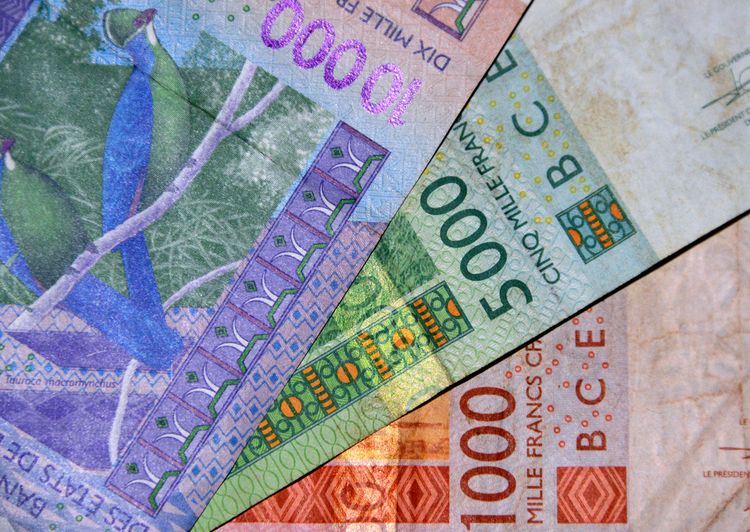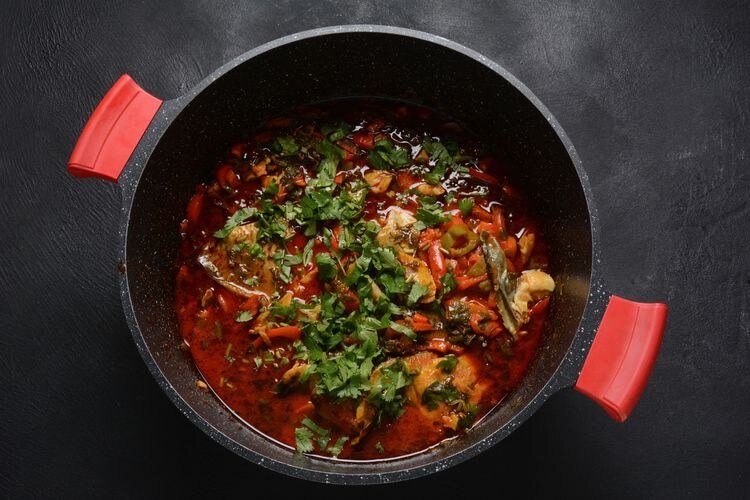Gabon Travel Tips and Information
Official Name
Republic of Gabon
Capital
Libreville
Population
Country Code
Approximately 2.5 million
GA
Country Code (international calls)
+241
The flight time to Gabon is approximately ---- hours. Check the climate, currency, religion, manners, other information of Gabon below. Wishing you pleasant travels to Gabon.
Gabon is a republic located in Central Africa. It shares borders with Cameroon to the north, the Republic of the Congo to the south and east, the Gulf of Guinea in the Atlantic Ocean to the west, and Equatorial Guinea to the northwest.
Local Climate / Weather
Gabon, located on the west coast of Central Africa, experiences a tropical rainforest climate characterized by high humidity and consistent warmth throughout the year. Temperatures typically range from 23°C to 31°C, making it ideal for travelers who enjoy warm, lush environments. However, the weather varies slightly across its wet and dry seasons, impacting the best times for tourism and activities. Wet Season (October to May): Gabon’s wet season sees heavy rainfall, especially between October and December and again from March to May. While wildlife viewing is excellent, as many animals thrive in the lush environment, travel during this time may involve navigating muddy paths and dealing with frequent rain showers. If you visit during this period, bringing waterproof gear and staying updated on local forecasts can enhance your experience. Dry Season (June to September): The dry season is the most popular time to visit Gabon, as rainfall decreases, making it easier to explore the country’s renowned national parks, like Loango and Ivindo. During this time, you can enjoy safari trips, spot migratory whales along the coast, and participate in various outdoor adventures. This period is ideal for nature lovers aiming for wildlife spotting in drier and more accessible conditions. Assumption Day (August 15): Celebrated nationwide, this religious holiday includes festive activities and cultural displays, offering travelers a chance to witness Gabon's vibrant spiritual traditions. Gabon Independence Day (August 17): Marking Gabon’s independence from France in 1960, this national holiday is a time of joy and celebration. Festivities include parades, music, dance performances, and public gatherings, showcasing Gabonese pride and heritage. Festival Gabao (varies): Gabon’s contemporary arts festival, Festival Gabao, celebrates Gabonese and African music, fashion, and art. This lively event often takes place in Libreville and is a hub for those looking to experience Gabon’s modern cultural scene.
Currency & Tipping
Currency
In Gabon, the official currency is the Central African CFA franc (XAF), which is commonly used across several Central African countries. For travelers, currency exchange is accessible in major cities and airports, though credit and debit cards are also accepted in many urban locations. However, cash is preferred in rural areas, so it’s advisable to carry local currency when venturing outside city centers.
Tipping
When it comes to tipping in Gabon, it’s generally appreciated but not obligatory. In restaurants, a 5-10% tip is customary if a service charge isn’t already included in the bill. For hotel staff, small gratuities for porters and housekeeping staff are welcomed. Taxi drivers don’t usually expect tips, but rounding up to the nearest convenient amount is a friendly gesture. Keeping these practices in mind will ensure a respectful and enjoyable experience in Gabon.
Useful Travel Information

Voltage & Electrical Outlets
In Gabon, the standard voltage is 220V with a frequency of 50Hz. The power plugs and sockets typically used are Type C and Type E, which are common in many European countries. Travelers, who may be used to 220V and Type A/B sockets, should bring a universal adapter to ensure compatibility with electronic devices.

Internet Connectivity
Accessing the internet in Gabon is straightforward in urban areas, with options for mobile data plans and public Wi-Fi available in hotels, cafes, and some public spaces. Key local mobile carriers in Gabon include Airtel Gabon, Moov Africa, and Libertis, offering SIM cards with a range of data packages suitable for short- and long-term visitors. Purchasing a prepaid SIM card upon arrival is recommended for travelers who wish to stay connected during their stay.
Water for Consumption (Drinking Water)
While tap water in Gabon may be treated in some areas, it’s recommended for travelers to stick to bottled water for drinking and even for brushing teeth to avoid any potential health issues. Bottled water is widely available in convenience stores, supermarkets, and restaurants across the country. For those staying longer or traveling to rural regions, using portable water filters or purification tablets can be a convenient option.
Culture, Religion & Social Etiquette
Culture
Gabon, located on Africa’s western coast, offers a rich blend of traditional customs and modern influences, making it a fascinating destination for travelers interested in cultural immersion. Gabon's diverse ethnic groups, including the Fang, Punu, and Nzebi, celebrate age-old customs, with oral storytelling, dance, and music forming the heart of Gabonese culture. Festivals, such as the Bwiti rituals practiced by the Fang people, are deeply spiritual events marked by traditional dances, music, and sometimes the use of iboga, a natural hallucinogenic plant that plays a role in initiation ceremonies.
Religion
Religion in Gabon is predominantly Christian, with a majority identifying as Roman Catholic or Protestant. Traditional beliefs also have a strong presence, often blended with Christianity in unique ways, especially among the Fang community, where Bwiti spiritual practices remain influential. Islam is present, though it is a minority faith. Understanding Gabon’s religious diversity and the syncretism between traditional and Christian beliefs can enhance travelers' experiences, especially when visiting sites of cultural or religious importance.
Social Etiquette
Gabon's social etiquette is generally formal, with respect for elders and authority deeply valued. Greetings are important, and a handshake, sometimes combined with a light touch on the arm, is customary. Addressing people respectfully, especially elders, and taking time for greetings before discussing business or personal matters are essential elements of Gabonese manners. When invited to a local home, gifts like fruit or sweets are appreciated, but it is polite to ask before taking photos, especially of people or cultural events, to respect local customs.
Food Culture
Gabon's food culture offers a unique and flavorful experience for travelers, blending African, French, and local traditions that result in a memorable culinary journey. The foundation of Gabonese cuisine is rich in fresh ingredients, including cassava, plantains, rice, and various meats like chicken, fish, and bushmeat. Travelers will find that Gabonese meals are hearty and flavorful, often enhanced with local spices, herbs, and vegetables like okra and eggplant. A standout dish is "nyembwe," a chicken stew cooked in a rich palm nut sauce, which might appeal to tastes for its savory depth, much like traditional adobo. For street food lovers, Gabon's vibrant street food scene presents an array of exciting options. Visitors can try grilled fish and meats seasoned with local spices, often served with cassava or plantain on the side. Another popular street item is "brochettes," skewered and grilled meats that are deliciously marinated, providing a quick yet satisfying snack. Travelers might also enjoy "fufu," a starchy accompaniment made from pounded cassava or plantains, similar to the texture of mashed potatoes, commonly served alongside stews or grilled meats. While exploring Gabon, travelers can visit recommended local restaurants in the capital city, Libreville, where they can enjoy a mix of traditional and modern interpretations of Gabonese cuisine. Notable spots include Tropicana and Les Paillottes, which serve dishes that highlight the local flavors and are perfect for travelers who wish to immerse themselves in the local food culture. Whether dining in a restaurant or sampling street food, Gabon's culinary landscape is sure to provide travelers with a rich and flavorful experience that captures the heart of this West African country.
Major Tourist Attractions & UNESCO World Heritage Sites
Major Tourist Attractions
1. Libreville The capital city of Libreville offers a vibrant introduction to Gabonese culture. Travelers can explore its rich history at the National Museum of Arts and Traditions, visit the scenic St. Michael’s Church known for its intricate wooden sculptures, and stroll along the seaside Boulevard de l'Indépendance. Shopping for local handicrafts and enjoying the nightlife at beachfront venues are recommended activities for a taste of urban Gabon. 2. Setté Cama Setté Cama, a small village on the Ogooué River, offers a cultural immersion experience, along with access to the Ndougou Lagoon and Loango National Park. Travelers can interact with locals, learn about traditional Gabonese fishing techniques, and take boat trips through the mangroves to spot diverse flora and fauna.
UNESCO World Heritage Sites
1. Loango National Park Loango National Park is renowned for its “surfing hippos” and expansive coastline, making it one of Gabon’s premier destinations. People who love wildlife photography will be thrilled to capture elephants, buffalos, and leopards roaming the beaches. Activities include guided safaris, boat rides on the Iguéla Lagoon, and beach excursions for bird-watching and turtle spotting. 2. Ivindo National Park (UNESCO World Heritage Site) This park is home to spectacular waterfalls, including the awe-inspiring Kongou Falls, and lush tropical rainforests filled with rare species. As a UNESCO World Heritage Site, Ivindo offers unique biodiversity and pristine landscapes. Travelers can enjoy river trips, jungle treks, and wildlife spotting, with chances to see gorillas, chimpanzees, and forest elephants. 3. Akanda National Park A haven for bird-watchers and beach lovers, Akanda National Park offers miles of unspoiled beaches and mangroves. The park attracts various migratory birds and marine life, making it ideal for eco-tourism. Activities like canoeing, kayaking, and bird-watching tours provide a peaceful escape and an opportunity to immerse in Gabon’s natural beauty. 4. Pongara National Park Famous for its nesting turtles, Pongara National Park combines dense forest and scenic beaches. Travelers can embark on guided turtle-watching tours, especially during the nesting season from November to February. Hiking through the park’s trails or relaxing by the beach offers a refreshing mix of adventure and relaxation. 5. Lopé National Park (UNESCO World Heritage Site) As Gabon’s oldest national park, Lopé is a UNESCO World Heritage Site recognized for its ancient forest and savannah landscapes. It’s also a significant archaeological site with petroglyphs dating back thousands of years. Travelers visiting Lopé can join guided safaris to see diverse wildlife, including mandrills, forest elephants, and antelopes, while learning about Gabon’s prehistoric heritage.
Travel FAQs
Is Gabon safe for travelers, and what should I be aware of?
Gabon’s security is somewhat unstable, with incidents involving firearms occurring frequently, which makes it a higher-risk destination. Be vigilant and take precautions to avoid trouble during your stay.
Can I communicate in English in Gabon?
Gabon is a French-speaking country, so English is rarely spoken. Be prepared for the language barrier.
Which airport is most commonly used for flights to Gabon?
Libreville International Airport, situated in the capital city, is the main hub for flights to Gabon.
When is the best season to visit Gabon?
The dry season, from June to August, offers mild weather with little rain, making it the best time to travel.
What are the COVID-19 entry requirements for Gabon?
As of September 2022, there are no specific COVID-19 travel restrictions or requirements. However, as conditions may change with the pandemic, it’s important to check for the latest updates.




